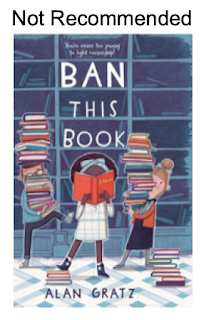"No results found." it said. Surely, I thought, that can't be right!
Let me explain. In 2021 and early in 2022 I was doing some work with teachers in California. A key emphasis in my work involves a critical look at award-winning, classic, and popular children's and young adult books like Scott O'Dell's Island of the Blue Dolphins. Most have stereotypical writing and illustrations that mis-educate readers.
When I do these professional development sessions, I often look at a state's department of education website to see if there are recommendations for children's books, and had looked at California's Department of Education site. It has a database of recommended books. I was not surprised to find Island of the Blue Dolphins in the database. Here's a screen capture of it:
The annotation in the database says there are scientific inaccuracies. I'd love to know what "scientific inaccuracies" refers to! I've analyzed the book. There are many problems with it. For details see A Critical Look at O'Dell's ISLAND OF THE BLUE DOLPHINS. (Note: Author Kate DeCamillo was persuaded not to write uncritically about the book after she read my post and Professor Eve Tuck's tweets that are part of my post.)
In October of 2022 I was doing some work with another California school system. I went back to the California Recommended Literature List to get a fresh screen capture of the entry for Island of the Blue Dolphins. I entered the title in the search bar, but instead of the annotated entry, I got "No results found." I took a screen cap and shared it on social media, sure that I was doing something wrong in my search of the database. I asked others to search for it and they had the same experience. The book was no longer in the database!
I started looking around the Department of Education website and found this paragraph:
Traditionally, the Recommended Literature List was updated periodically, with new titles being added to the previous lists. This resulted in a Recommended Literature List with over 8000 titles. As of 2022, the CDE is pleased to take the Recommended Literature List in a new direction, with an annual updated and refreshed list of the latest and best in children’s and young adult literature.
An updated and refreshed list of the latest and best? That was exciting! Of course, I did a few searches of names of Native writers and was thrilled to see their books in there!
In February (of 2022) I had also looked up Leo Politi's deeply flawed Song of the Swallows. Published in 1949, it won the Caldecott Medal. It, too, had been in the database and it, too, is not there anymore!
The next paragraph on the site tells us that the previously curated lists are available to download. So I downloaded the "Recommended Literature List through 2020" as an XLSX document and started looking through it.
I am delighted with what I learned! These books that AICL does not recommend are also not in the database anymore:
- Brink, Carol Ryrie. Caddie Woodlawn
- Gardiner, John Reynolds. Stone Fox
- Joossie, Barbara M. Mama Do You Love Me?
- Wilder, Laura Ingalls. Little House on the Prairie
Because my initial look into the database was for Island of the Blue Dolphins I wondered if the database had other books by Scott O'Dell. The answer is that it did. Below, I am listing the ones that focus on, or include, Native content. I know teachers use many of them but I hope they will revisit their use. I've read several of his books but have not written about them. If I had reviewed them for AICL, they'd carry a Not Recommended label.
NOT RECOMMENDED:
- The Serpent Never Sleeps: A Novel of Jamestown and Pocahontas
- Sing Down the Moon
- Thunder Rolling In the Mountains
- Zia
- Black Star, Bright Dawn
- The King's Fifth
In the last few years, there have been significant changes in many spaces! From monuments that are taken down or renamed, to names of children's book awards that are changed... These changes are unsettling to some people but for so many others, these are profound moments of justice. I look forward to more of this. I try to keep up with changes. If you see one that I missed, do let us know!







